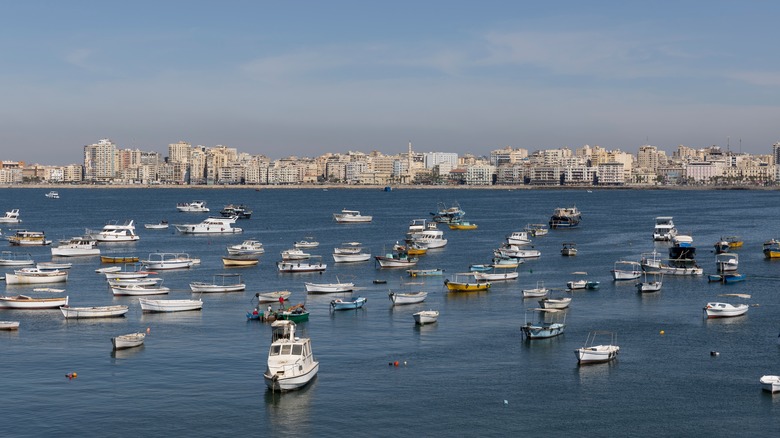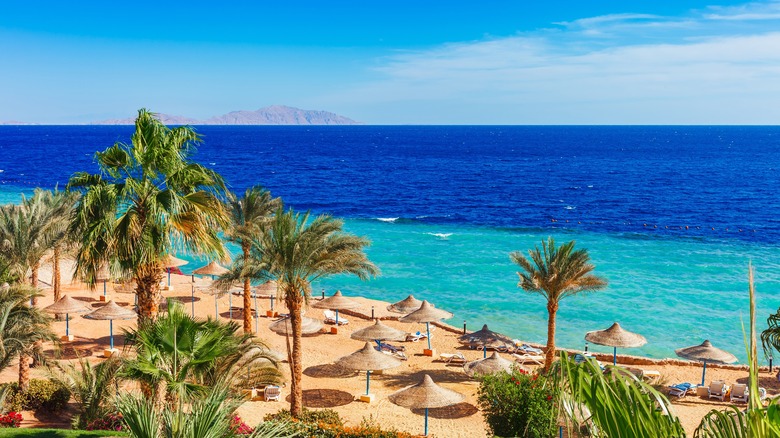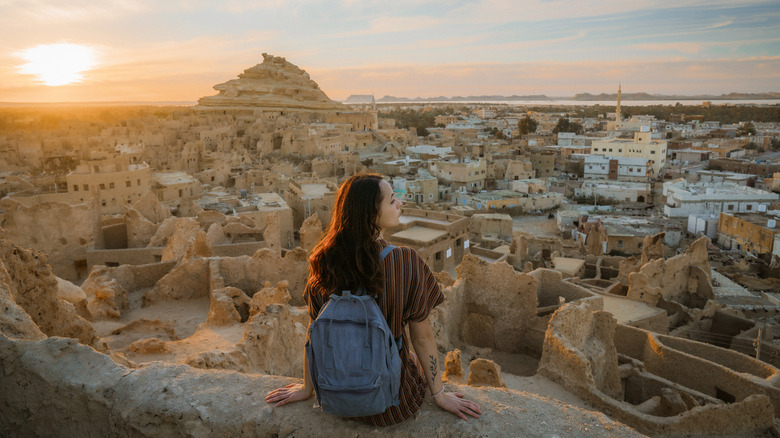The Only Destination Rick Steves Has Called Too Dangerous To Recommend His Viewers To Visit
If you're traveling to a new destination and need advice, you might turn to Rick Steves (and us, of course) for help. The professional traveler is known for his in-depth guides to some of the world's most captivating countries, which can be found in both his books and his TV specials. However, there's one place Steves has covered in his work that he doesn't recommend his fans to visit: Egypt.
During a 2020 virtual event with KCTS 9 (via Cascade PBS), an audience member asked the travel expert if he would ever organize tours in Egypt. In response, Steves revealed that he wouldn't, explaining that he doesn't recommend the average person travel to the North African nation. "My Egypt special is the only TV show I've ever made that didn't include a suggestion to actually travel there," he shared. "I loved it, but I think it might be a bit wild and dangerous for many of our viewers." In 2018, Steves also wrote in a Facebook post that Egypt was suffering "from a political, economic, and tourism point of view." As a result, he was hesitant to encourage people to visit the Pyramids — an attraction he believes should be on every traveler's bucket list — and other Egyptian attractions.
Officials discourage travel to some parts of Egypt
While Egypt isn't among the world's most dangerous countries for foreigners, Rick Steves isn't the only one who thinks it's too treacherous for tourists. The U.S. Department of State issued a travel advisory for the destination beginning in July 2023. According to the notice, Egypt is classified as a Level 3 country, meaning Americans should reconsider traveling there. The primary reason for the advisory is the threat of terrorist attacks in the area, though possible detainment of U.S. citizens was also cited as a security risk.
Additionally, the U.S. government warns Americans in its travel advisory to avoid specific areas in Egypt to keep themselves safe. These include the Sinai Peninsula and the Western Desert due to terrorism, as well as the Egyptian border areas due to the presence of military. Cairo and Giza, where you'll find many iconic sites such as the Pyramids and the Nile River, aren't listed among the most dangerous zones.
The U.K. government offers similar recommendations to British nationals. In its official travel advice, the U.K. suggests tourists avoid a handful of Egyptian regions, including the Egypt-Libya border, parts of Sinai, the eastern part of Ismailiah Governorate, the Western Desert, the Hala'ib Triangle, and the Bir Tawil Trapezoid. It also highlights terrorism, violent protests, crime, and strict laws as points of concern for foreign travelers.
How to stay safe during a trip to Egypt
Egypt is a country steeped in history and bursting with culture, but as Rick Steves says, it isn't particularly known for safety. Still, the destination doesn't have to be entirely off-limits for curious tourists. If you want to experience Egypt with your own two eyes, consider booking a trip with a tour guide or group. At the KCTS 9 event, Steves noted, "It's interesting that nearly all the travelers [in Egypt] were on guided bus tours. It's just not that comfortable for individual travelers." The travel guru added a friend of his friend called Tarek runs local "Egypt and Beyond" tours in Cairo, which can be one way to explore the sites without having to venture off alone.
How you dress can also influence your personal safety. In particular, female travelers should be mindful when packing clothes for Egypt. Opt for loose garments that cover the skin from the shoulders to below the knees. Women are also required to cover their hair at places of worship.
Remember always to follow the latest travel recommendations published by your government, and don't visit areas deemed too dangerous. Plan your trip in advance, and research cities before adding them to your itinerary. Finally, be vigilant, just as you would in most other destinations. Watch out for pickpockets and scammers, and keep an eye on your surroundings while out sightseeing.


